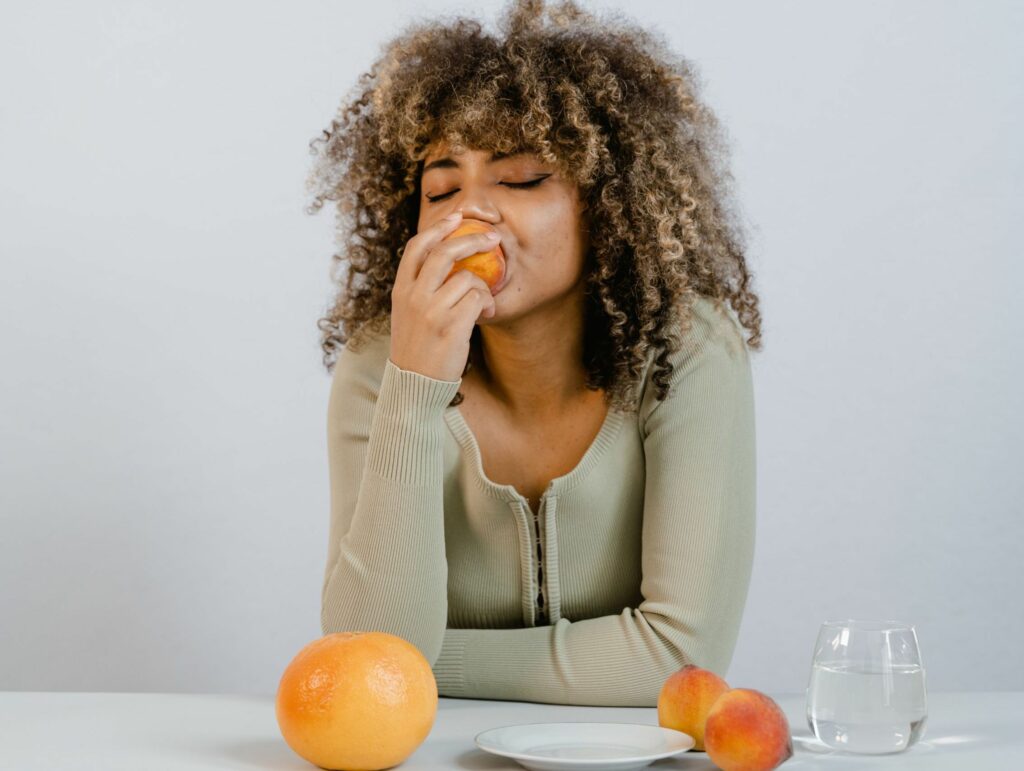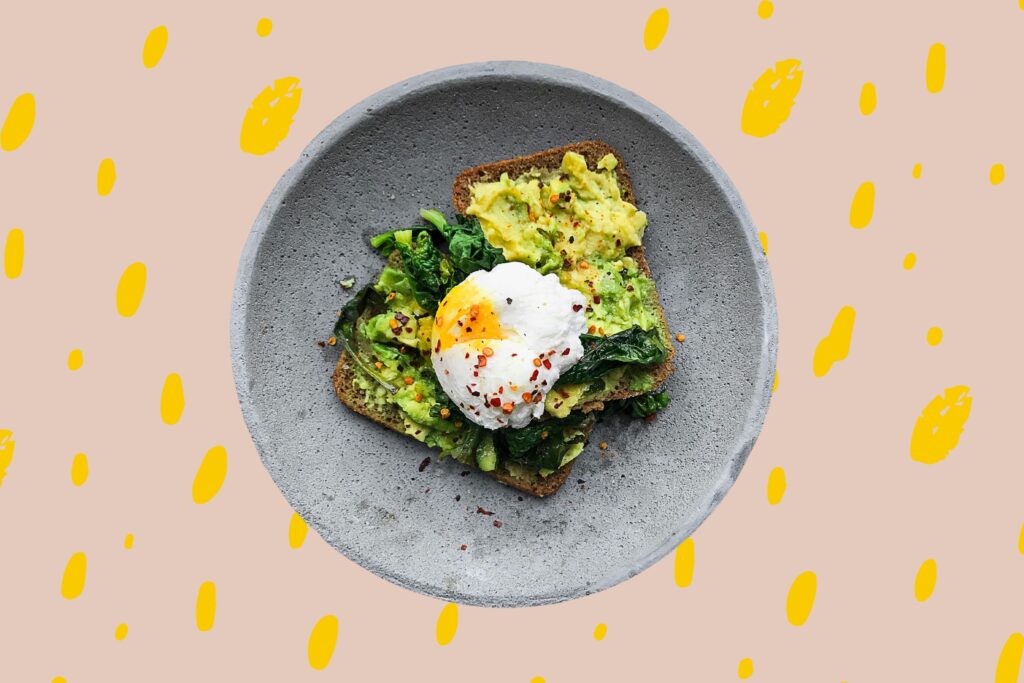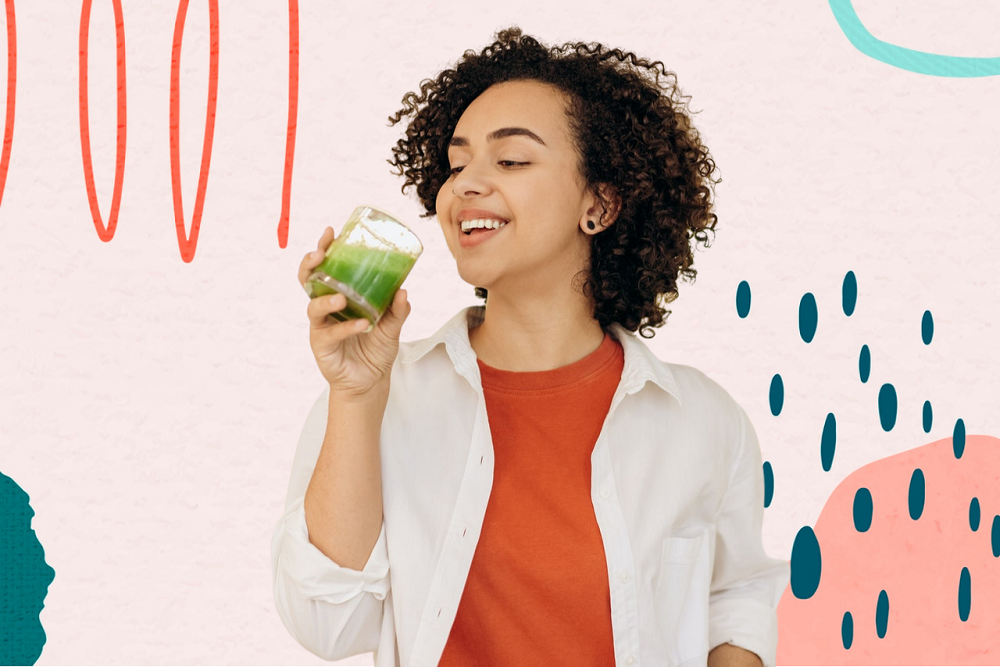The COVID-19 pandemic fundamentally altered how we eat. Research from the UK found that during lockdown, households purchased around 280 extra calories per adult each day, with significant increases in takeaway consumption and snacking. The pandemic saw many of us turning to comfort foods during successive lockdowns, ordering more takeaways than ever before, and developing unhealthy habits around sugar, salt and alcohol consumption.
Now, as we move further away from those difficult times, it’s the perfect moment to reassess our eating habits. However, before we dive into specific changes you can make, it’s worth noting that the latest government reports on UK diets found that in England, although there were some encouraging signs in the nation’s diets, eating excessive sugar, salt and saturated fats were still all a cause for concern. The NHS concur, stating that ‘Most people in the UK eat and drink too many calories, too much saturated fat, sugar and salt, and not enough fruit, vegetables, oily fish or fibre.’
We all know that it can be hard to follow a healthy, balanced diet at the best of times. When you’re trying to pivot towards a healthier diet, it’s tempting to try and make huge, sweeping changes right away. We tell ourselves that today is the day that everything will be different. But as anyone who has tried to execute a complete diet shake-up right off the bat will tell you, it’s gradual, incremental changes that work much better. With that in mind, here are 9 small, sustainable diet changes to help you eat healthier.
Rethink Your Snack Time
Ah, snacking. We all know exactly where we’re going wrong with our snacks, but we just can’t resist them. It’s no secret that things like chocolate, crisps, biscuits and pastries are loaded with things that are bad for us. And sure, the occasional treat is absolutely fine; we all deserve an indulgence or two, after all.
But if you find you’re turning to the hard stuff more and more frequently, to help cope with stress or to distract you from the tedious monotony of life, then perhaps it’s time for a rethink?
One of the main reasons we get into these unhealthy snacking habits is convenience. You’re never going to find it difficult to find a chocolate bar or a pack of crisps, and they require absolutely no preparation or clean-up. They’re easy, and that’s why their habitual consumption can be so tricky to shake. If you want to introduce healthier snacks to your routine to replace the bad ones, then you need a plan of action.
Prepare some sliced carrots, celery or cucumber first thing in the morning (or the night before if you’re not a morning person!) so it’s ready to go when you get snacky. Make sure that you have plenty of fruit around so there’s no excuse for skipping your five a day. If that’s not convenient, think about picking up some packets of dried fruits and nuts for satisfying that ‘just need a nibble on something’ moment.

Breakfast Is Still Important
We all know the saying that breakfast is the most important meal of the day. And when we were commuting into work every morning back in the halcyon days of 2019, a pre-tube bowl of cereal was just a natural part of our routine.
But one of the trickier aspects of working from home has been the loss of structural discipline when it comes to mealtimes. When you’re rolling out of bed in a bleary haze and immediately firing up your laptop to check in with the office, the most important meal of the day can quickly become sidetracked or forgotten.
If you want to make sure that you are cutting down on snacking through the morning, then eating breakfast is essential. It’s not enough to have a cup of coffee and start work. A sugary bowl of cereal or a pastry might give you a quick jolt of energy, but a crash will follow. Instead, make a nutritious choice in the morning with something like a bowl of muesli or porridge, topped with a little low fat yoghurt and some fresh seasonal fruit, or the much-maligned but still delicious avocado on toast with a poached egg. This should see you through until lunchtime.

Identify Any Potential Allergies Or Intolerances
We often assume food issues would have been identified in childhood, but it can take years to realise we’ve developed a new problem. The huge increase in awareness about gluten intolerance is a prime example.
As the experts at Repose Healthcare recommend, if you’re suffering recurring pain or discomfort after eating, investigate further. A food sensitivity test is a simple way to find out if you have any allergies or intolerances.
Cut Down On Your Alcohol Intake
The drastic rise in alcohol use during the pandemic was hardly surprising given the mental health challenges many faced. Even if you’re a casual drinker, it’s worth examining how much you consume weekly.
Beyond the obvious health implications, alcoholic beverages are loaded with empty calories. Remember too that alcohol is a depressant. If your mood suffers after a glass of wine, consider drinking less or cutting it out completely.

Drink Caffeine In Moderation
We all need a boost sometimes, but remember that after the caffeine high comes the crash. Your energy levels will drop in an hour or two, affecting your mood. Try replacing at least one caffeinated beverage with a caffeine-free alternative. Your sleep patterns might improve too.
Learn The Facts On Fats
To sustain a healthy diet, it’s important to know something about the nutritional values of food. That said, there’s so much confusion over nutrition, and time and time again the lines are redrawn about what may or not be healthy.
Intelligence regarding fat, particularly, has shapeshifted, with science now recommending doing away with a daily ceiling being put on fat consumption, and instead focusing on replacing ‘bad’ fats with ‘good’ ones – or saturated with unsaturated.
Simple swaps can be made regarding fat which can help you manage your weight. These include: swap whole milk for skimmed, prioritise low fat instead of full fat cheese, swap butter for low fat spreads or extra virgin olive oil, switch the sour cream for low fat crème fraîche, and use rapeseed oil or extra virgin olive oil for frying with a spritzer to control the amount you use.
Generally speaking, doctors and nutritionists regard monounsaturated and polyunsaturated fats as being considerably more healthy than the saturated kinds. You’ll find monounsaturated fats in oily fish, walnuts, and some seeds, while polyunsaturated fats are found in nuts and avocados, especially.
Stay Hydrated Throughout The Day
Many of us mistake thirst for hunger, leading to unnecessary snacking. The NHS recommends six to eight glasses of fluid daily. Proper hydration supports metabolism, aids digestion, and helps you feel fuller. Keep a reusable water bottle with you and take regular sips. If plain water bores you, add lemon, cucumber, or mint.

Practice Mindful Eating
It’s easy to eat whilst distracted by phones or televisions. Research suggests that mindful eating helps you develop a healthier relationship with food. Sit down without distractions, chew slowly, and savour each bite. This practice helps you eat less whilst enjoying food more. Check in with yourself before eating: are you truly hungry, or just bored or stressed?
Plan Your Meals In Advance
Planning meals ahead is one of the most effective ways to maintain a healthy diet. Without a plan, you’re more likely to reach for convenience foods or takeaways. Set aside time each week to plan your meals and create a shopping list.
Batch cooking is another excellent strategy. Prepare larger portions and freeze individual servings, so you’ll always have a nutritious home-cooked meal available.
The Bottom Line
Though drastic dietary changes may feel easier, quick fixes rarely work. Making small, incremental changes is the most sustainable approach to better health.
The pandemic taught us lessons about our eating habits, both good and bad. Don’t berate yourself for past choices; focus on the positive changes you can make moving forward.
You don’t need to implement all nine changes at once. Start with one or two that feel most achievable, and gradually build from there. For more inspiration on healthy living, you know what to do.





